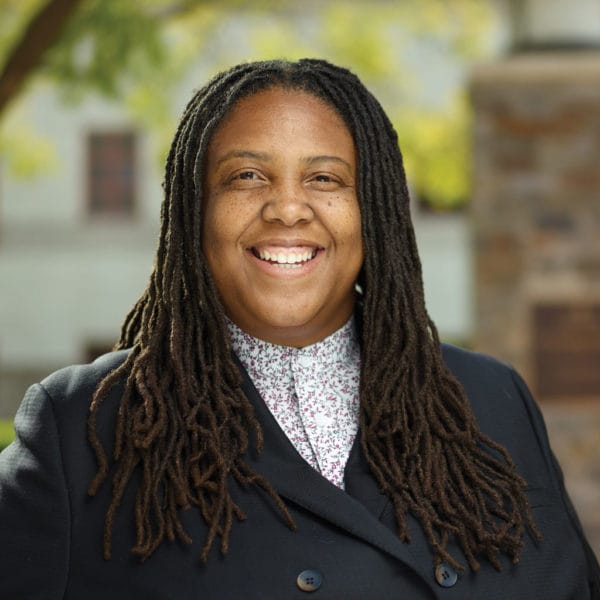Torie Weiston-Serdan is a scholar and practitioner with over 13 years of teaching and youth programming experience. An emerging leader in the youth mentoring field, she wrote Critical Mentoring: A Practical Guide, which has become the handbook for culturally sustaining youth work in the discipline. Outside of teaching and research, Weiston-Serdan runs the Youth Mentoring Action Network, a non-profit dedicated to leveraging justice and equity mentoring. Through her community-based work, she mentors Inland Empire youth through high school into college and careers. She also works extensively with other community-based organizations in support of their youth advocacy efforts, specializing in training mentors to work with diverse youth populations: i.e. Black, Latinx, LGBTQQ, first-generation college students and low-income youth.
As a scholar, she examines how marginalized and minoritized youth are served by mentoring and youth development programs. Weiston-Serdan currently serves on the Big Brothers Big Sisters LGBTQ National Advisory Council and the Research Board of the National Mentoring Resource Center.
“Tell me who I can be: Mentoring queer Black girls in hostile educational spaces.” In Celebrating twenty years of Black girlhood: The Lauryn Hill reader, edited by B. Sankofa Waters, V. Evans-Winters, and B. Love, 143–56. New York: Peter Lang Publishing, 2019.
Critical mentoring: A practical guide. Sterling, Virginia: Stylus, 2017.
Co-authored with A Daneshzadeh. “You can’t call that mentoring: The fallacy of Obama’s My Brother’s Keeper.” In How the Obama Presidency Changed the Political Landscape, edited by L. Walker, E. Brooks, and R. Goings, 122–41. Santa Barbara: ABC-LIO, 2017.
Co-authored with S. Dorn-Giarmoleo. “Vertical integration as a mode of professional production: Teachers’ resistance to the business of teaching.” In Learning Teaching from Experience: Multiple Perspectives and International Contexts, 191–206. London: Bloomsbury, 2014.
“A radical redistribution of capital.” Journal of Critical Education Policy Studies 7, no. 2 (2009): 394–417.
Schools, Communities, and Higher Education: Foundations for Critical and Community Engaged Education
